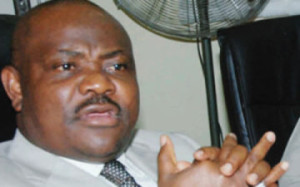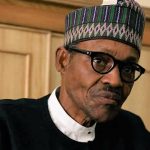Charting A Way Forward For Education
Articles/Opinion, education Friday, March 21st, 2014
Adewale Kupoluyi
The just-concluded 20th Nigerian Economic Summit in Abuja offered practical solutions on how the nation’s ailing education sector can be revamped and better repositioned to bring about the much-desired development. It was, no doubt, a rich platform for brainstorming, frank talk, exchange of ideas and passing of resolution to really make a difference in the polity.
While unfolding the agenda for the summit, the Chairman of the Board of NESG, Folusho Phillips stated that the summit on education was designed to achieve three things: draw the attention of stakeholders to problems in the education sector, consider the capacity of the government in addressing the sector and device institutional mechanisms to address the problems. Phillips underscored the relevance of the summit in fast-tracking the formulation of national policies and called on stakeholders to participate in the change process towards redeeming the education sector for future economic growth.
On why education was chosen this time around, the Director-General of NESG, Frank Nweke (Jnr), disclosed that the decision was taken to redress the decline in the sector, being critical to economic development. “The Nigerian education sector is in dire straits and requires the intervention of both public and private stakeholders, if it is to fulfil its function of preparing Nigeria to compete in the global economy,” he said.
Declaring the summit open, President Goodluck Jonathan, represented by the Vice-President, Architect Mohammed Sambo challenged NESG, to review the policy foundation of Nigeria’s education sector developed in 1969 to meet current realities. The President said: “More than forty years after, this policy foundation is ripe for review, to determine its relevance and fine tune its adaptability to national objectives, in this 21st Century”. He also decried the dearth of data on the education sector, particularly at the primary and secondary school levels. He said availability of reliable data had become a major challenge as government tried to navigate solutions to present decadence in the nation’s education sector.
President Jonathan stressed that his administration was determined to transform the education sector, being a key factor to the aspiration of Nigeria to be among the 20 strongest economies by the year 2020, saying “several policy initiatives are being implemented to facilitate and improve adult literacy and school enrolment at all levels of our educational institutions. Government is forging partnerships with other stakeholders in order to invigorate the education sector and also encourage intra-sectoral partnership with the private sector, voluntary organisations and development partners,” he stated.
Speaking in the same vein, the Supervising Minister of the National Planning Commission, Alhaji Bashir Yuguda, said the summit would set agenda for ‘presidential dialogue’ on national issues and would go a long way in transforming the nation’s educational system. On his part, the Supervising Minister of Education, Barrister Nyesom Wike, while reeling out statistics, told the audience that the Federal Government had invested N144.7 billion in basic education between 2009 and 2013; given as grants to states to assist them in funding basic education. The minister also said that through the Tertiary Education Trust Fund alone, the sum of N268.484bn was allocated to the Universities, of which N233.33billion had been accessed, while the balance of N35.154billion had not been accessed. In addition to the funds released through TETFund, the minister said a total of N94.129billion had been released to Federal Universities, through the National Universities Commission for capital, direct teaching and laboratory cost, as well as teaching and research equipment.
The former World Bank Vice-President for Africa, Dr. Oby Ezekwesili, took participants on another voyage when she said focusing on early child education would help the development of young generation in Nigeria, as she called for permanent structural change that would enhance the quality of education and develop skills in Nigerian children, stressing that Nigeria had a lot to do to catch up with global trend. Ezekwesili, who is now the Economic Advisor of the Open Society Foundation, said that the best time of formation of a child was between the age of three and five when the neurons could stimulate well. She said both the public and private sectors should work together in core area of vocational, innovational and institutional building, as this would help to bring the private sector in building skills and capacity of the young ones.
Ezekwesili, therefore, canvassed need for good governance in the education sector as well as the need to intensify effort in training and re-training of teachers. She called on the government and stakeholders to ensure the employment of qualified hands into the education system. On achieving Millennium Development Goals on education, she said it was unfortunate that Nigeria was not among the countries that would achieve the goal by 2015 but urged the government to focus seriously on basic education to help build a better society.
The 3-day summit with the main theme, Transforming Education Through Partnerships for Global Competiveness, was structured into nine plenary sessions, eight design workshops that touched on all aspects of the Nigerian education sector, was attended by major players, experienced panelists and resource persons such as Professor Pai Obayan, Chairman, Board of the West African Examinations Council; Mrs. Maryam Katagum, Nigeria’s Permanent Delegate to the United Nations Education, Scientific and Cultural Organisation; Mrs. Grace Laoye-Tomori, Osun State Deputy Governor and Commissioner for Education; Professor Chidi Odinkalu, Chairman, Human Rights Commission; Professor Femi Bamiro, a former Vice-Chancellor, University of Ibadan; Mr. Solomon Adegbie-Quaynor, Country Manager, International Finance Corporation; Mr. Nicholas Verveide, Managing Director, Nigerian Breweries Plc; Dr. Enase Okonedo, Dean, Lagos Business School, Dr. Aliyu Naiya, Acting Executive Secretary of TETFund, Senator Adeseye Ogunlewe, former Minister of Works and Professor Olusola Oyewole, President, Association of African Universities (AAU) and Vice-Chancellor of the Federal University of Agriculture, Abeokuta.
Others include Comrade Adams Oshiomhole, Edo State Governor; Professor (Mrs.) Modupe Adelabu, Ekiti State Deputy Governor and Chairman, State Universal Basic Education Board; Professor Addison Wokocha, Registrar/CEO, Teachers’ Registration Council of Nigeria; Professor Mcjohn Nwaobiala, Permanent Secretary, Federal Ministry of Education; Senator Uche Chukwumerije, Chairman, Senate Committee on Education and Mrs. Fatimah Abdulrahman, President, All Nigerian Confederation of Principals of Secondary Schools.
As I observed during my participation at the Design Workshop IV that discussed Tertiary Education, Competiveness and Employability, facilitated by Mrs. Nike De Souza, Managing Director, People Temp Limited that the essence of the discourse would amount to nothing but a mere waste of time and resources if the outcomes of the summit were not implemented by the relevant authorities. To allay my fears and that of many Nigerians, the Minister of National Planning, Alhaji Yuguda had assured that Federal Government would implement recommendations of the summit. He said government had showed commitment to the implementation of recommendations of the 19th summit which focused on the agricultural sector. “So, the same thing will happen to the recommendations that have come out from this summit. I assure you as a government that we will not be here for three four days in vain”, he maintained.
The highpoint of the well-attended summit was the presentation of the summit summary to the President and Presidential Policy Dialogue on the education sector, which aims to determine the gaps in the implementation of the Presidential Task Team (PTT) report that is to provide a platform, for meeting Nigeria’s developmental goals. The NESG, founded in 1993, is an independent, non-sectarian organisation that is committed to fostering open and continuous dialogue on Nigeria’s economic development by seeking to define and facilitate the implementation of a sound economic agenda.
Kupoluyi writes from the Federal University of Agriculture, Abeokuta, vide, adewalekupoluyi@yahoo.co.uk, Twitter, @AdewaleKupoluyi
Related Posts
Short URL: https://www.africanexaminer.com/?p=9351























